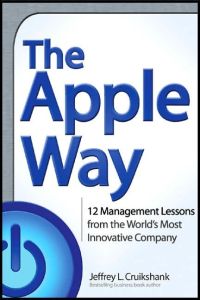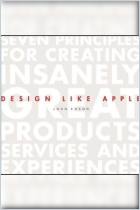Join getAbstract to access the summary!

Join getAbstract to access the summary!
Jeffrey L. Cruikshank
The Apple Way
12 Management Lessons from the World`s Most Innovative Company
McGraw-Hill, 2005
What's inside?
Learn how to "think differently."
Recommendation
Apple's estimated share of the worldwide personal computer market is only 2%. Why is a company with such a tiny slice of a multibillion-dollar pie so prominent, influential and highly respected? Jeffrey L. Cruikshank's briskly written, informative and entertaining book examines the philosophy and management principles of one of the world's most innovative companies. In an industry known for cutthroat competition, Apple really has none – at least for now. The company, under visionary CEO Steve Jobs, has carved out a unique niche. The mercurial Jobs deserves the lion's share of the credit for bringing equilibrium, profitability and promise to the company since his triumphant return to Apple in 1997. Although Apple is probably inimitable, getAbstract recommends this book to managers who wish to learn how it navigated the heavy seas of business.
Summary
About the Author
Jeffrey L. Cruikshank is the author of The Real Estate Game and The Intellectual Venture Capitalist: John H. McArthur and the Work of the Harvard Business School.





















Comment on this summary